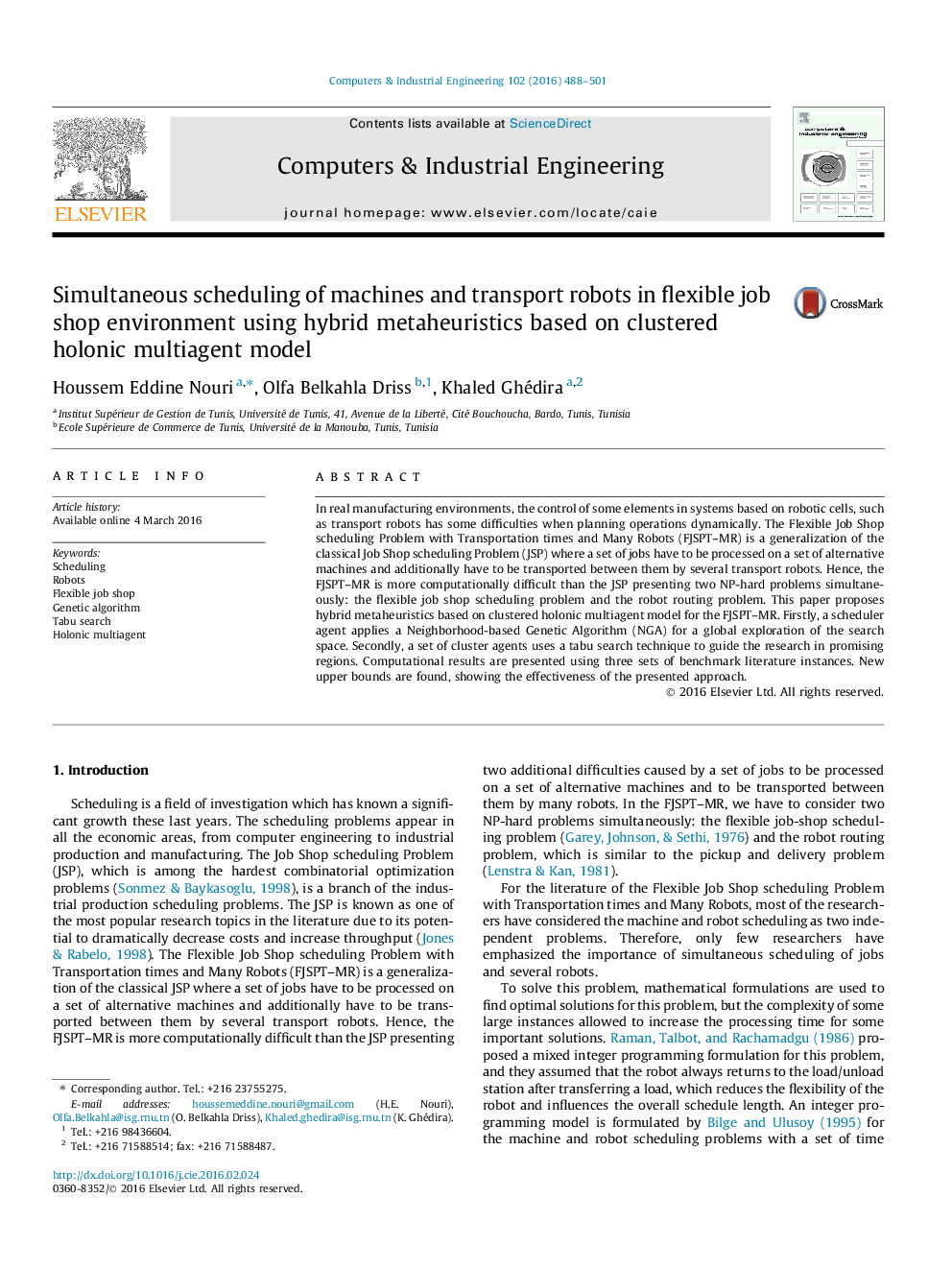| Article ID | Journal | Published Year | Pages | File Type |
|---|---|---|---|---|
| 5127971 | Computers & Industrial Engineering | 2016 | 14 Pages |
â¢Hybrid metaheuristics is proposed to schedule machines and transport robots.â¢A genetic algorithm is applied by a scheduler agent to explore the search space.â¢A local search is used by cluster agents to guide the search in promising regions.â¢A new disjunctive graph is presented to model simultaneously this problem.â¢Computational results are presented using three sets of benchmark instances.
In real manufacturing environments, the control of some elements in systems based on robotic cells, such as transport robots has some difficulties when planning operations dynamically. The Flexible Job Shop scheduling Problem with Transportation times and Many Robots (FJSPT-MR) is a generalization of the classical Job Shop scheduling Problem (JSP) where a set of jobs have to be processed on a set of alternative machines and additionally have to be transported between them by several transport robots. Hence, the FJSPT-MR is more computationally difficult than the JSP presenting two NP-hard problems simultaneously: the flexible job shop scheduling problem and the robot routing problem. This paper proposes hybrid metaheuristics based on clustered holonic multiagent model for the FJSPT-MR. Firstly, a scheduler agent applies a Neighborhood-based Genetic Algorithm (NGA) for a global exploration of the search space. Secondly, a set of cluster agents uses a tabu search technique to guide the research in promising regions. Computational results are presented using three sets of benchmark literature instances. New upper bounds are found, showing the effectiveness of the presented approach.
Graphical abstractDownload high-res image (137KB)Download full-size image
